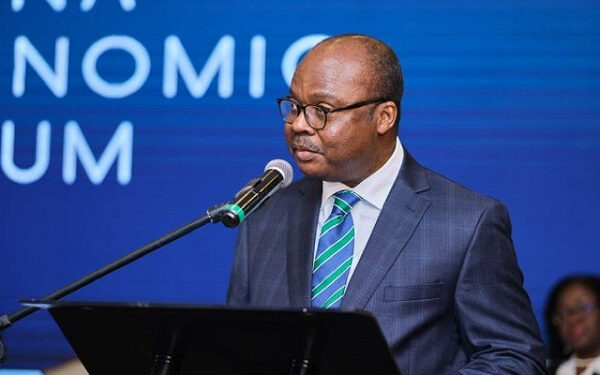Governor of the Bank of Ghana, Dr. Ernest Addison has said that the clean-up of the banking sector positioned it in better stead to withstand the shocks of the COVID-19 pandemic.
Presenting the keynote address at this year’s edition of the Ghana Institute of Management and Public Administration (GIMPA) Biennial Law Conference, Dr. Addison described the clean-up as providential.
“It is by providence that the financial sector clean-up was undertaken at the time that it took place, as heading into the pandemic, Ghana had already turned the fortunes of the banking system around and restored confidence in the sector.
All the financial soundness indicators, measured in terms of earnings, liquidity, and capital adequacy, showed significant improvement. We had put into place a framework to strengthen banks’ capital,” the governor said.
The central bank undertook a clean-up of the financial sector which has so far cost the taxpayer more than GH¢21bn. The two-year long exercise covered the resolution of 420 institutions, made up of insolvent banks and specialised deposit-taking institutions (SDIs).
These included nine banks, 15 savings and loans companies, eight finance houses, 347 microfinance institutions, 39 microcredit institutions, one leasing company, and one remittance company.
The Bank of Ghana had explained that the mass licence revocations were necessary to clean the financial sector and reduce contagion risks while creating an environment for stronger and well-run institutions to thrive and play their expected intermediary role of supporting the economy.
Major test
Dr. Addison, whose address was on the theme, “The Banking and Financial Sector Crisis in Ghana: Towards Sustainable Reforms”, said although the pandemic has presented an unprecedented negative shock to the economy and a major test of the resilience and
robustness of the banking sector, the central bank has risen to the challenge with policy measures to protect the financial system and support the real economy.
Some of the measures he listed include the March 2020 lowering of the monetary policy rate by 150 basis points to 14.5 percent, the lowering of the cash reserve requirement ratio to allow banks access to additional liquidity, and restraining banks from paying 2019 dividends to preserve capital and liquidity.
According to Dr. Addison, in the aftermath of the pandemic, the central bank will pursue a careful unwinding of countercyclical measures that it has implemented and allow the financial system to function without the regulatory forbearance that it has put into place.
“Banks will have to be vigilant and upgrade their capabilities, improve governance and risk culture, and we are optimistic that with this approach, we will build a robust, resilient and capable financial sector to support Ghana’s Beyond Aid Agenda,” he said.
Going forward, Dr. Addison added, the financial sector will require constant regulatory and policy attention to mitigate the risks.
The economic impact of the pandemic, he explained, may result in higher non-performing loans and capital erosion of banks, with the recapitalisation of the SDIs becoming necessary to improve their resilience and enhance the safety of depositors’ funds.
“The Bank of Ghana is putting greater focus on identifying the early warning signals and initiating prompt corrective action. The symptoms of weak banks are usually poor asset quality, lack of profitability, loss of capital, excessive leverage, excessive risk exposure, poor conduct, and liquidity concerns. These symptoms are often caused by inappropriate business models, poor governance, poor decision making by senior management, misalignment of internal incentive structures with external stakeholder interests, and poor supervision,” he said.
Source:myashhfmonline.com





